I slightly changed your code - run a loop 3000 times instead of 1000 and write serialized data into memory stream instead of file, and profile it with dotMemory. (I found using VS that RuntimeType instances are leaked, but did not find how to see where they were created).
At the end app occupied about a 1Mb of memory (I did not received a result of 500Mb as on your screenshot) but it's obviously a leak here.

Then opened all new objects created between the first and the fourth snapshots placed in Gen2 heap and found out that most of them are (as I mentioned above) instances of RuntimeType.

Opened them and saw that there are five almost equal sized groups of them.

So, the answer is "yes, this method produces a memory leak"
Below five stack traces where these objects were allocated
--------- 1 --------------
Allocated: 83580 B in 2985 objects
System.Reflection.Emit.TypeBuilder.CreateTypeNoLock()
System.Reflection.Emit.TypeBuilder.CreateType()
System.Xml.Serialization.XmlSerializationWriterILGen.GenerateEnd()
System.Xml.Serialization.TempAssembly.GenerateRefEmitAssembly()
Folded items
[AllThreadsRoot]
--------- 2 --------------
Allocated: 83552 B in 2984 objects
System.Reflection.Emit.TypeBuilder.CreateTypeNoLock()
System.Reflection.Emit.TypeBuilder.CreateType()
System.Xml.Serialization.XmlSerializationReaderILGen.GenerateEnd()
System.Xml.Serialization.TempAssembly.GenerateRefEmitAssembly()
Folded items
[AllThreadsRoot]
--------- 3 --------------
Allocated: 83552 B in 2984 objects
System.Reflection.Emit.TypeBuilder.CreateTypeNoLock()
System.Reflection.Emit.TypeBuilder.CreateType()
System.Xml.Serialization.XmlSerializationILGen.GenerateBaseSerializer()
System.Xml.Serialization.TempAssembly.GenerateRefEmitAssembly()
Folded items
[AllThreadsRoot]
--------- 4 --------------
Allocated: 83552 B in 2984 objects
System.Reflection.Emit.TypeBuilder.CreateTypeNoLock()
System.Reflection.Emit.TypeBuilder.CreateType()
System.Xml.Serialization.XmlSerializationILGen.GenerateTypedSerializer()
System.Xml.Serialization.TempAssembly.GenerateRefEmitAssembly()
Folded items
[AllThreadsRoot]
--------- 5 --------------
Allocated: 83552 B in 2984 objects
System.Reflection.Emit.TypeBuilder.CreateTypeNoLock()
System.Reflection.Emit.TypeBuilder.CreateType()
System.Xml.Serialization.XmlSerializationILGen.GenerateSerializerContract()
System.Xml.Serialization.TempAssembly.GenerateRefEmitAssembly()
Folded items
[AllThreadsRoot]


